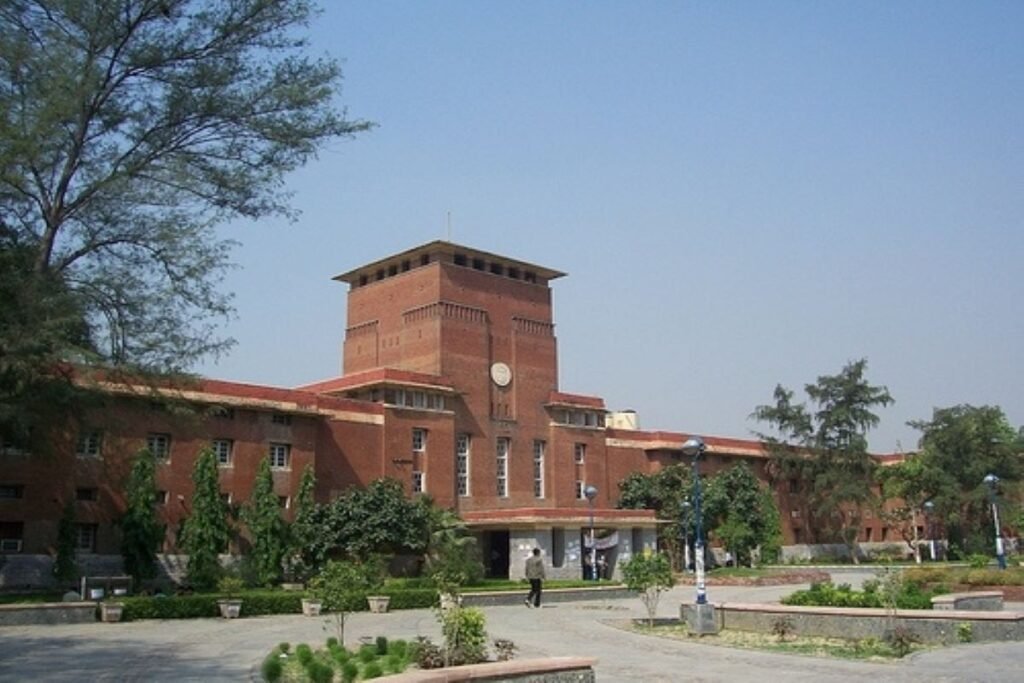
DU Under Fire for Dropping PG Papers on China, Pakistan, and LGBTQ+ Topics
DU’s move that has sparked academic debate. Delhi University’s Standing Committee on Academic Matters (SCOM) has reportedly directed the Department of Political Science to withdraw several proposed postgraduate papers, particularly those dealing with sensitive topics such as China, Pakistan, and gender and sexuality.
According to two committee members, SCOM met earlier this week and asked the department to “drop” four discipline-specific electives (DSEs) that were part of the proposed curriculum under the National Education Policy (NEP) 2020 framework. These papers were:
- DSE 29: Pakistan and the World
- DSE 31: China’s Role in the Contemporary World
- DSE 33: Islam and International Relations
- DSE 35: State and Society in Pakistan
A fifth elective, DSE 52: Religious Nationalism and Political Violence, is scheduled to be reviewed at the next SCOM meeting on July 1, 2025.
It is important to note that these papers were only in the proposal stage and had not yet been introduced into the actual curriculum. Despite this, committee members indicated that the political science department was asked to reframe the syllabus and that certain themes were considered “too controversial” for inclusion at this stage.
Concerns Over Censorship and Narrowing Perspectives
The decision has not been without criticism. A committee member, who requested anonymity, said, “The department was asked to rework the syllabus and the papers were directed to be dropped entirely.” Another attendee, Monami Sinha, voiced concern about academic freedom being compromised. “The registrar began the meeting by stating that controversial topics relating to Pakistan would be removed,” she explained. “This could rob students of the opportunity to study and critically understand contemporary geopolitics.”
Ratnabali K, Dean of Academic Affairs and presiding officer for parts of the meeting, defended the decision. “We must not glorify Pakistan,” she said. “If we are to discuss Pakistan, it must be in relation to India. Similarly, we questioned the relevance of including China alone—why not explore our relationships with other neighboring countries too?”
Sociology Curriculum Also Under the Scanner
The Department of Sociology was also asked to reconsider parts of its proposed syllabus. One of the key areas of contention was the inclusion of Kath Weston’s Families We Choose: Lesbians, Gays, Kinship in the core paper titled Sociology of Kinship. The objection, according to Sinha, was based on the argument that “joint families should be taught first,” especially since same-sex marriage is still not legally recognized in India.
Defending the rationale, Ratnabali added, “Students should first understand the structure of Indian families. We are not against discussing topics like LGBTQ+ kinship, but perhaps they are better suited for a later stage in the program.”
Further revisions were suggested for the Sociology of Religion section as well. Terms like “prophet” and “church” raised concerns for not being inclusive enough. The department clarified these were standard academic terms, but SCOM asked for “more neutral language.” Ratnabali explained, “We suggested replacing ‘church’ with ‘religious structures.’ If a prophet is mentioned, why not also refer to a Rishi?”
Gender Course in Geography Also Faces Pushback
The Geography Department was not spared either. A proposed course titled Geographies of Gender and Development in South Asia was questioned for highlighting patriarchy without also acknowledging matriarchal societies. One committee member remarked, “The department was asked to add matriarchy for balance.”
Final Decisions Still Pending
While these suggestions have triggered debate, they are not final. The standing committee only provides recommendations. The revised syllabi must first go back to the respective departments for adjustments. Once updated, they must be approved by DU’s Executive Council and Academic Council, the university’s highest decision-making bodies.
The final Academic Council (AC) meeting is scheduled for July 5, 2025, where these issues are expected to be further deliberated.
As Delhi University grapples with balancing academic freedom and political sensitivities, the question remains—should education challenge boundaries or stay within them?
Also Read: ICMAI Invites CMAs for SEBI Task Force: Submit EOI for NISM Certification Course
Also Read: CBSE offers 2 exams for Class 10th: Taking first test mandatory